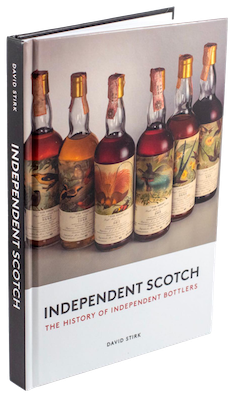Filters
A brief guide to Speyside
The basics
Speyside is a historic region in northeastern Scotland, known for its high concentration of whisky distilleries. Located in the valley of the River Spey, which gives the region its name, Speyside lies within the Scottish Highlands, though it's often distinguished as a separate whisky region due to its unique characteristics and whisky styles. The region stretches from the rugged coastline of Moray in the north to the forested hills of Aberdeenshire and Inverness-shire in the south, encompassing towns such as Elgin, Dufftown, and Keith. Famous for producing lighter, fruitier, and often honeyed single malts, Speyside is home to iconic distilleries like Glenfiddich, Macallan, and Balvenie, making it a favorite destination for whisky enthusiasts worldwide.
Speyside whisky is known for its smooth and complex flavour profile, with notes of fruit, honey, and caramel commonly found in many of the whiskies produced in the region. The flavour of Speyside whisky is influenced by the type of grains used, the production process, the type of barrels used for ageing, and the length of ageing.
Speyside whisky is made using a traditional production process that involves several steps.
The process begins with the malting of barley, which involves soaking the grain in water and then allowing it to germinate.
The germinated grain is then dried using heat, which helps to release the sugars that will be used to produce alcohol during fermentation.
The dried grain is then ground into a fine powder called "grist," which is mixed with water to create a "mash."
The mash is then fermented using yeast to produce a liquid called "wash."
The wash is then distilled in a still to separate the alcohol from the water, and the resulting spirit is aged in oak barrels to give it flavour and character.
Speyside whisky is aged in oak barrels, which can contribute to the flavour and character of the whisky. The type of oak and the previous use of the barrels can also impact the flavour of the whisky. The length of ageing can also affect the flavour of the whisky, with longer ageing typically resulting in a smoother and more complex flavour.
Speyside whisky is known for its smooth and complex flavours, with notes of fruit, honey, and caramel commonly found in many of the whiskies produced in the region.
However, the flavour profile of a particular Speyside whisky can vary widely depending on the specific recipe and production methods used by the distillery.
The Distilleries
Aberlour, established in 1879 in the heart of Speyside, is known for its rich, full-bodied whisky crafted with traditional methods. Located near the Ben Rinnes mountain, the distillery sources pure spring water, which contributes to the character of its spirit. Aberlour’s use of both bourbon and sherry casks for maturation creates a whisky with deep, layered flavors, often featuring notes of fruit, chocolate, and warm spices. This careful blending of cask influence results in a complex profile that is both robust and refined.
Founded in 1892 near Dufftown, Balvenie is distinctive for its hands-on approach to whisky-making, including growing its own barley, operating a traditional malting floor, and managing its own cooperage. This commitment to traditional craftsmanship yields a whisky style that is smooth, honeyed, and rich in character. Balvenie’s dedication to control at every stage of production allows it to craft whiskies with a depth of flavor and complexity, marked by notes of honey, vanilla, and gentle oak.
Founded in 1898 near Elgin, BenRiach has a unique place in Speyside with its diverse approach to whisky-making, producing both unpeated and peated single malts. Known for its experimentation with various cask types, BenRiach matures its whisky in barrels such as sherry, bourbon, and even rum, resulting in a broad range of flavor profiles. Its style often includes fruit-forward notes with layers of vanilla, spice, and occasionally a hint of smoke, highlighting the distillery’s innovative yet traditional spirit.
Cardhu, set in the scenic hills of Knockando, was established in 1824 and is notable for its pioneering role in Speyside’s whisky heritage. With early contributions from Helen Cumming, one of Scotland’s few female distillery founders, Cardhu has a unique place in the region’s history. The distillery’s whisky is light and smooth, with a flavor profile that balances notes of honey, orchard fruit, and gentle spice. Cardhu’s style emphasizes accessibility and refinement, making it a staple in Speyside’s collection of single malts.
Cragganmore, established in 1869 near Ballindalloch, is known for its complex and layered whisky, thanks in part to the use of flat-top stills that capture more of the spirit’s character. Located close to the River Spey, Cragganmore benefits from the area’s pure water sources, which contribute to its refined profile. The whisky is typically rich and multi-dimensional, with notes of malt, fruit, and subtle smoke, making it a distinctive expression within the Speyside region.
Located in the town of Rothes and established in 1878, Glenrothes is known for its meticulous approach to maturation, with a focus on sherry casks. This careful process creates a whisky that is smooth, full-bodied, and rich in flavor, often displaying notes of dried fruit, vanilla, and spice. Glenrothes’ style is both elegant and robust, with a refined depth that reflects its dedication to quality and patience in crafting its single malts.
Glenfiddich, established in 1887 in Dufftown by William Grant, remains one of the last family-owned distilleries in Scotland. Renowned for its commitment to quality and innovation, Glenfiddich was instrumental in popularizing single malt whisky globally. The distillery uses copper pot stills and a high-quality water source from the Robbie Dhu spring, yielding a whisky that is smooth and complex, with notes often described as fruity and slightly spicy. Glenfiddich’s style reflects a balance of tradition and subtle innovation, maintaining its place as a defining Speyside single malt.
Established in 1840 by brothers John and James Grant in Rothes, Glen Grant is one of Speyside’s oldest distilleries. Known for its light, approachable style, Glen Grant’s whisky is crafted with tall stills and purifiers that create a clean, crisp spirit. Typically matured in bourbon casks, the resulting whisky is often fresh and delicate, with notes of orchard fruits, subtle malt, and hints of grass. This refined character has made Glen Grant a popular choice for those seeking a lighter Speyside expression.
Glenlivet, one of the oldest licensed distilleries in Speyside, was established in 1824 and helped to define the region’s whisky style. Located near Ballindalloch, it produces a light, floral whisky known for its purity and consistency. Glenlivet’s production prioritizes smoothness and clarity of flavor, with its spirit typically embodying delicate fruit and floral notes. This balanced, approachable style has become synonymous with Speyside, positioning Glenlivet as a benchmark for the region’s single malts.
Located by the River Spey and established in 1898, Knockando is a distillery committed to producing single malts with a natural and traditional approach. It uses minimal cask intervention, allowing the natural flavors of the spirit to shine. Knockando’s whisky is known for its clean, fruity profile, often with hints of almond, fresh apple, and a gentle maltiness. Its straightforward production process emphasizes the purity of its ingredients, creating a well-rounded and unadulterated Speyside style.
Founded in 1824 near Craigellachie, Macallan is celebrated for its dedication to quality and the distinctive character imparted by its oak casks. The distillery’s commitment to maturing whisky in sherry-seasoned casks gives its spirit a unique depth, marked by rich flavors of dried fruit, spice, and a smooth, rounded finish. Macallan’s production emphasizes careful cask selection and maturation, resulting in a whisky style that is full-bodied, complex, and layered with nuanced flavors that have defined its reputation worldwide.
Founded in 1823 in Dufftown, Mortlach has earned a reputation for its bold, robust single malts. Known for its unique 2.81 distillation process, Mortlach produces a heavier, meatier spirit that stands out among Speyside’s typically lighter styles. This full-bodied whisky often features flavors of dark fruit, leather, and spice, with a depth and intensity that appeals to those seeking a more complex and substantial single malt. Mortlach’s distinctive character has led to its nickname as the “Beast of Dufftown.”
Speyburn, founded in 1897 in Rothes, combines traditional whisky-making techniques with local ingredients to produce a classic Speyside malt. The distillery’s whisky is typically light and smooth, with flavors of green apple, honey, and gentle citrus. Speyburn’s approachable style and dedication to preserving a traditional Speyside profile have made it a favorite among those who enjoy a fresh, easy-drinking single malt that still carries complexity.
Founded in 1966 in the village of Tomnavoulin, Tamnavulin is one of the newer distilleries in Speyside, yet it has quickly established a reputation for quality. Its whisky is typically matured in a combination of American oak and sherry casks, imparting a smooth, fruity character with notes of toffee, tropical fruit, and gentle spice. Tamnavulin’s style is accessible and versatile, reflecting a balanced Speyside profile that appeals to both newcomers and seasoned whisky drinkers alike.

